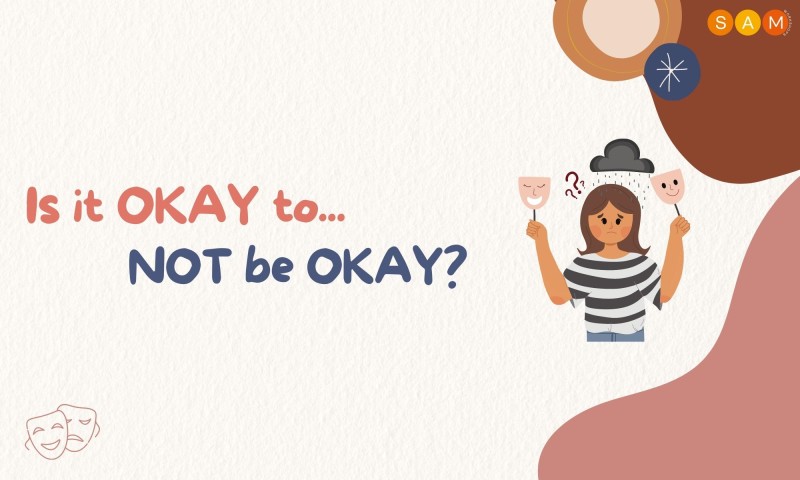Humans feel a wide range of emotions and the truth is that humans are flawed. We get jealous, angry, resentful, greedy and sad. But by pretending to maintain a sunny outlook, we deny the authentic human expression.
Yes, research shows happier people tend to live longer, be healthier and enjoy more successful lives. However, some studies have also shown that when people place a high value on their happiness, it can lead to less happiness, especially in contexts where they most expect to feel happy.
This tendency to expect happiness and then to feel disappointed or to blame oneself for not feeling happy enough has been linked to greater depressive symptoms and deficits in well-being. As the line to a cartoon by Randy Glasbergen depicting a patient confessing to his psychologist puts it: “I am very, very happy. But I want to be very, very, very happy, and that is why I’m miserable”.
When people are coping with situations such as financial troubles, job loss, illness or the loss of a loved one; being told that they need to look on the bright side can seem downright cruel. This sort of toxic positivity can silence negative emotions, demean grief, and make people feel under pressure to pretend to be happy even when they are struggling.
Toxic positivity is especially harmful right now. The pandemic has triggered our need to control and avoid uncertainty. With something as unpredictable and uncertain as COVID-19, a knee-jerk reaction might be to slap on an overly optimistic face to avoid accepting a painful reality. But the reality is painful right now. We are all collectively battling feelings of loneliness, anxiety and fear of getting sick.
We all know that having a positive outlook on life is good for our mental well-being. Toxic positivity takes positive thinking to an overgeneralized extreme. It is a "good vibes only" approach to life. However, life is not always positive. We all deal with painful emotions and experiences. Those emotions, while often unpleasant, are important and need to be felt and dealt with openly and honestly. Not acknowledging these emotions and failing to talk about them will not make them go away.
Not many of us know how to talk about sad or uncomfortable topics. It is normal and understandable to not want to deal with negative emotions sometimes. But if we are regularly forcing a positive outlook on ourselves when our feelings are the opposite, it can take a toll on our mental health. If we keep ghosting our own emotions, they’ll keep coming back to haunt us until we finally deal with them.
Toxic positivity is often subtle, and we have all engaged in this type of thinking at one point or another. Learning to recognize the signs can help us better identify this type of behaviour. Some signs include:
· Hiding/masking our true feelings
· Trying to “just get on with it” by stuffing/dismissing an emotion.
· Feeling guilty for feeling what we feel
· Minimizing other people’s experiences with “feel good” quotes or statements
· Trying to give someone perspective (e.g., “it could be worse”) instead of validating their emotional experience
· Shaming or chastising others for expressing frustration or anything other than positivity
· Brushing off things that are bothering you with an “It is what it is”
True happiness does not come from suppressing negative emotions and touting feel-good statements. Some research shows that talking about emotions, including negative emotions, may even help the brain better process feelings. An older study found that labelling and talking about emotions reduced the strength of certain brain pathways associated with those emotions. This finding suggests that talking about feelings may make them feel less overwhelming.
Therefore, it is important to acknowledge the reality of our emotions by verbalizing them and moving them out of our bodies. This is what keeps us sane, and healthy and relieves us of the tension caused by suppressing the truth. Once we honour our feelings, we embrace all of ourselves, the good, the bad and the ugly. And accepting ourselves just as we are on the path to robust emotional life.
If you can’t be honest about your feelings, how will you ever be able to hold space for someone else to express real feelings in your presence? By curating a fake emotional world, we attract more fake-ness resulting in superficial relationships.
It’s OK to not feel OK. We cannot, as human beings, just choose only the emotions we want to have. It simply does not work that way. Feeling all our feelings, painful or not, keeps us grounded in the present moment.”

